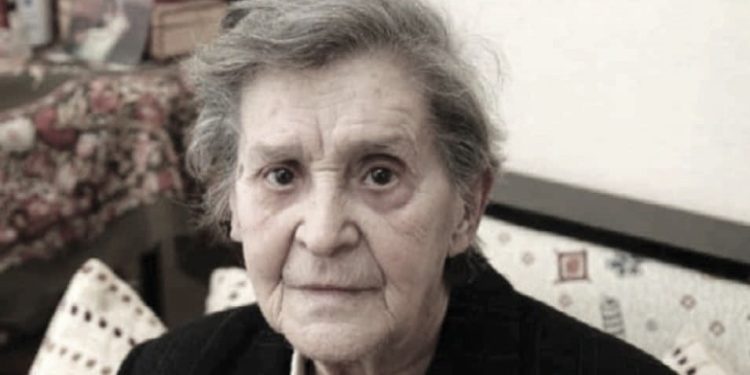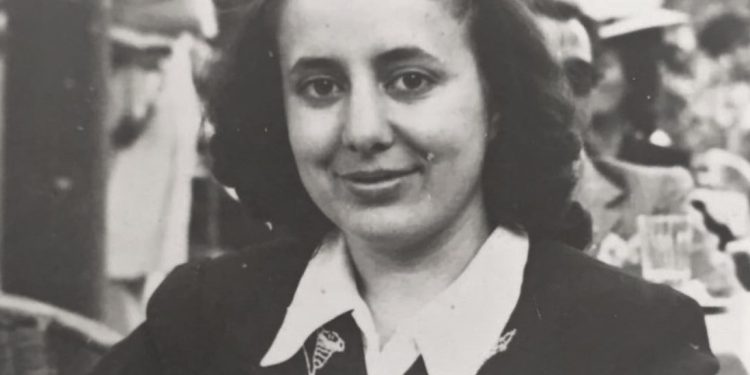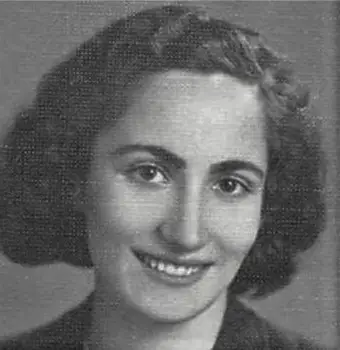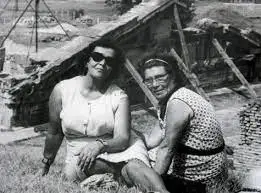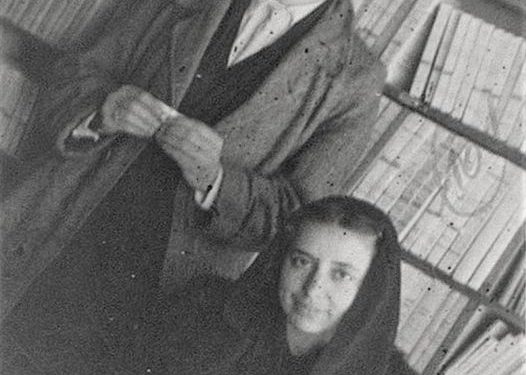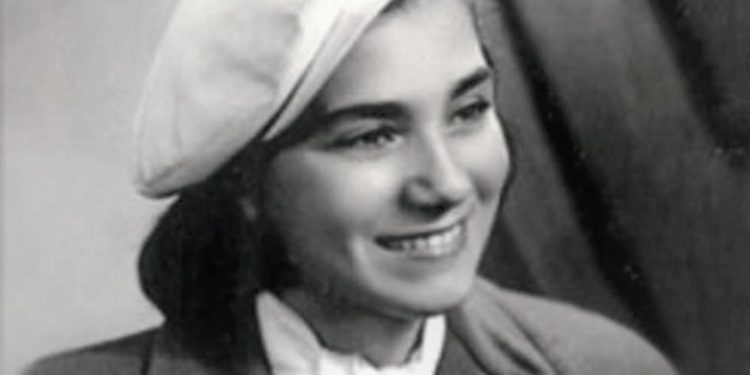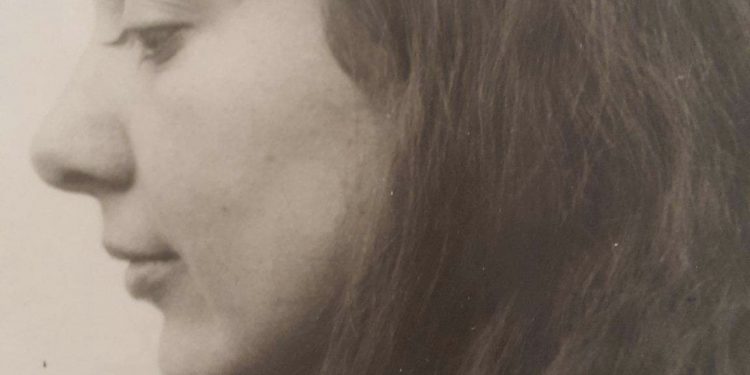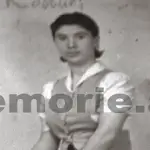By Ermira Isufaj
Memorie.al / The father, a career diplomat, while the mother, born in the Hellenic state, is the daughter of a rich family…! Because of his father’s position, life until the age of 16 had been offered to Makbule Frashëri, everything he wanted. The easy rest of the Greek coast, running around with friends in the orchards full of oranges in the area of Lipjadha near Corfu, were just a part of the everyday life of the pampered daughter of the Frashëri family. But the unexpected turn that her life would take, immediately after the day they would set foot on Albanian soil, to visit her father’s tribe, who lived scattered between Tirana and Korça, would collapse her reality in front of her eyes…! The political system of the time closed their borders and they could not return to the neighboring country…!
Everything was left behind, the house, the assets, the diplomat’s chair for Qemali, her father. The evils would collide one after the other, even after the integration of the family into society. The need to meet his brother in Korça was labeled by the agencies of the time as an attempt to escape from Albania. He was handcuffed while having dinner with his brother and ended up in the old prison of Tirana. Hard days in the detention cells, torture by electroshock, in the dungeon filled with cold water, until he fainted.
However, those deprived of their freedom for 12 years in a row served Makbula to make new friendships with those brave girls, known for their anti-communist activity. From the personal conversations with the writer Musine Kokalari, to the unexpected visit that former Prime Minister Mehmet Shehu made to the girls in prison. How Mehmeti got revenge on Drita Kosturi and his conversation with Makbule Frashër himself, who during 12 years of imprisonment, lost his father, who died in the internment camp, in Kuç, Vlora, and his husband, who separated him, after the requested divorce …!
Ms. Makbule, you were born in Corfu, Greece, during the time when your father was the consul of Albania there. Two words about your father and your childhood…
I am the daughter of Qemal Frashëri. My father was a connoisseur of six foreign languages, an honorable man with outstanding diplomatic activity. After higher studies in Greece, during the years 1925-1928, he held the post of Consul for Albania, in Corfu, Greece. Of course, because of the work and the terrain where he carried out all his daily activities, he also met the Greek girl who would become his wife, Lemania.
I was born in Corfu and was the youngest child in the family. Because of my origins, but also because of my father’s position, we lived in very good conditions. I can’t forget those gardens full of oranges in Lipjada, an area near the house where we lived. Everything seemed like a normal life, until the age of 16, where the whole life of the family would take an unexpected turn.
Why, what happened in this period?
The father, due to his several years of studies, as well as his job, had not met his tribal relatives for many years. Almost all of my father’s tribe was located in Tirana and Korça, while my mothers were in Greece.
In 1944, my father decided that the whole family should go to Tirana, to stay a few days with his relatives, because they had been separated for years. But we came to Tirana, I was only 16 years old and I remember that after almost a week we wanted to go back to Greece again, all the roads were closed; they didn’t let us leave Albania.
Enver Hoxha closed all our roads and we remained here in Tirana. My father made his efforts with known people, who could allow us to move from Albania and our return to Corfu, but it was all in vain, impossible.
Thus, weeks, months passed, and we began to believe that reality was what it was and we could not avoid it. That’s why we had to integrate into society and the conditions we were in without any compromise.
What did integration mean to you, adapting to those conditions?
It meant that we had to start all over again…! After the wealth we had left behind in Greece, the house and everything, we needed to find a job to survive. My father, since he had a well-known diplomatic experience, was able to adjust to the position of general secretary in the Ministry of Foreign Affairs here in Tirana, while I started working in the pastry factory.
My brother was a police officer by profession, and he went to work in Korça, because our uncle also lived there. Thus, the course of our lives began to return to normality, even though nothing around could be compared to what we left behind in Greece.
Did you feel the shadow of the Security people during your movements?
Of course yes! From the moment we were no longer allowed to leave Albania, even my Greek origins were factors that undermined our coexistence, under normal conditions. Every time I went to work, early in the morning, I noticed shadows of two men following me, even though according to my parents’ instructions, I should not express myself or talk too much, especially in the work environment. But the worst would come later…!
You mean your arrest?
Exactly…! I was only 24 years old, married and had given birth to a baby, my daughter. My sister had gone to Korça a few days ago to meet her brother, Fuat, because it had been some time since he had left home on business, due to his work as an officer.
Therefore, I also entrusted my daughter to my mother and decided to join them both, just to meet. We had a strong bond with each other. We went to have dinner in a bar; it was just me and my brother.
During dinner, two people from the Security came, who approached our table, and they immediately put handcuffs on me: the charge was: “Attempt to escape from Albania”.
According to them, since the state did not let us return to Greece, I had found an opportunity to escape through Korça, so they arrested me. First they took me to the Security Directorate of the Korçë district, and then they immediately transferred me to the old prison of Tirana.
Did you go to court?
Before I went to trial, in those small dungeons of the prison, I spent terrible nights and the most inhuman tortures. They put me under electric shock three times, another time they put me in a dungeon filled with ice cold water, leaving me there for 24 hours straight, until I passed out. They tortured me, asking me to explain that; why did I want to escape, who were my accomplices…?!
But I had not made any similar attempt, because I was young, I had a small child…! After the torture in the dungeon, the day came that I went to trial. The prosecutor was Aranit Çela, who, together with the judicial body, declared me an “enemy of the people”, on the charge of attempting to escape from Albania and agitation and propaganda. The pretense was given for 15 years, but then I was reduced to 12 years of deprivation of liberty.
There, in the old prison of Tirana, did you have the opportunity to get to know your fellow prisoners?
I shared the days of the prison with Musine Kokalari, Drita Kosturi, Qemal Stafa’s fiancee, Lavdije Petrela, Neta Paci, and many other well-known women who, before facing the prison bars, had become famous for their activities their anti-communist…! That’s why they were labeled as dissidents of popular power and imprisoned.
What were the conversations you shared with each other?
We often met each other, because it was not only the common environment that connected us, but also work. We all worked in the prison tailor shop, sewing military uniforms.
Then, when the Tirana prison was abolished and they were forced to transfer us, they sent us all together to work at the Kamza Farm, and then they sent us to Kuçova Prison. Musineja was a woman who had rare friends. She was not only knowledgeable, well-read, but also very cooperative…!
In fact, every time we women wanted to pray to the prison directorate for a specific request, we always trusted Musine with this, because she compiled properly and with the chosen words, the message we wanted to convey. We often had even more personal conversations.
I remember one day, when Musineja told me that she had arrested Enver Hoxha himself, because he had feelings for her and had told her that; wanted to marry Musine. She said that she did not accept such a thing, because she had no intention of marrying Enver. Since this goal was not realized, he took revenge by inventing all kinds of accusations, until she was convicted.
What about Qemal Staffa’s fiancée, Drita Kosturi, what was her nature?
Surprisingly she was the quietest of all of us, she spoke very little, she was quiet in nature. But she also shared her memories with us, telling us how many times they went out with Qemal Stafa, how she adored him for the preparation and prudence that boy had, etc.
Being one of the main leaders of the Albanian Communist Party, since its creation, this meant a decent relationship between Qemal and Enver Hoxha, but no circumstance, according to her, justified the murder of Qemal Stafa.
The theories that circulated afterwards were from those of his elimination by Enver himself, due to political rivalry, to his murder by the Italian invader, but Drita did not believe the latter…!
During your stay in prison, were you ever visited by any government officials of the time?
Yes, one of them was Mehmet Shehu. They came suddenly, to inspect the situations, from time to time. He also entered my cell and asked me that; why I wanted to escape, who were my accomplices, but I explained that I was still a young mother with a small baby in my arms, and a newly built family, and I did not have such conditions that would lead to my escape .
While, when he gathered all of us women, I remember that he addressed Drita Kosturi, saying that; would decide to open her own grave with her own hands, because they would shoot her…! The light, as calm as it was, replied that he did that too, without any doubt…!
After imprisonment, what happened to your husband and parents?
As soon as I was arrested, one of these people who joined the charges for escaping was my husband, Laze Alia, an officer by profession. He asked me for a divorce, until he separated me. While my father, since he often came to see me in prison, he sometimes brought my daughter; but they arrested him, with the accusation that he was the parent of a declassified girl and “an enemy of the popular power”.
He was interned in Kuç i Tepelena, until he became seriously ill and, after 10 years in the internment camp, he died. The news of the loss of my father came to me in prison and there was no greater pain for me. I wanted to drown in the prison well, I was in a serious psychological state, and the prison staff, after finding this out, nailed the mouth of the well with boards.
You benefited from an amnesty of 1964 and thus got out of prison… but now without your husband by your side, and with your father dead…?!
There was no greater sadness for me. I spent 12 years locked in a cell, amid tortures that have left me with physical mutilations even today. The years in there were like a real hell, but the price I paid was also very expensive…! A separated family, divorced from the husband and the dead father in the internment camp in Kuc, Vlora.
It took me a lot of effort to start a new life and everything from scratch. I started working as a glass factory worker and then, over the years, I felt the weight of those sufferings come to an end…! Memorie.al




